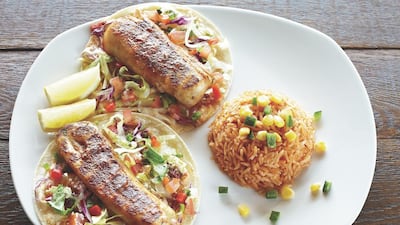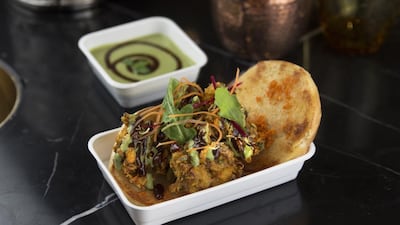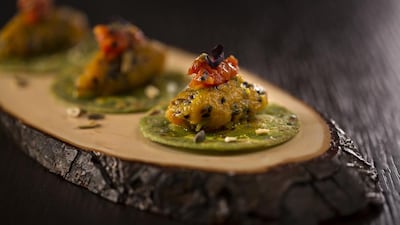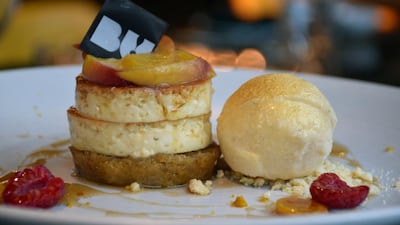Here’s a sneak peek at this year’s must-try dishes, most of them from new restaurants in the capital.
JW Steakhouse Marriott Downtown Abu Dhabi
Mains on offer: braised beef cheeks and Kettyle’s Northern Irish Aberdeen Angus beef rib-eye (28 days dry-aged)
Must try: Lump crab cake appetiser with avocado, cucumber, lime, tomato Dh20
Loca - Set to open next year on Al Maryah Island
Mains on offer: meat tacos, chicken tacos, fish tacos, quesadilla filled with chestnut mushroom and cheese
Must try: Baja tacos with spiced, grilled kingfish and chipotle mayonnaise Dh30
Punjab Grill Venetian Village within the Ritz-Carlton Abu Dhabi, Grand Canal
Mains on offer: Kulhad biryani, butter chicken with rice pilaf and pindi chole
Must try: Prawn bhaji slider appetiser: shrimp and onion fritters sandwiched between Indian bread rolls Dh20
Tamba The Hub at The Mall at World Trade Center, Abu Dhabi
Mains on offer: seared salmon, tiger prawns, lamb chops, and sweet-and-sour pumpkin
Must try
Sweet-and-sour pumpkin with spinach paratha and tomato salsa Dh30
Velocity Marriott Downtown Abu Dhabi
Mains on offer: Wagyu burger with Gruyère cheese, and lobster and beef-bacon roll
Must try: Lobster and chorizo croquette appetiser Dh20
The Sportsman's Arms Zayed Sports City
Mains on offer: Cajun-spiced baby chicken, honey-chipotle chicken wings and its signature burgers
Must try: Jack’s pepsi-glazed beef sliders Dh30
Bu The Hub at The Mall at World Trade Center, Abu Dhabi
Mains on offer: Picanha anticucho (beef skewers), and quinoa with mushrooms and truffle oil
Must try: The dessert: alfajor cheesecake with dulce de leche, Dh15
sjohnson@thenational.ae






